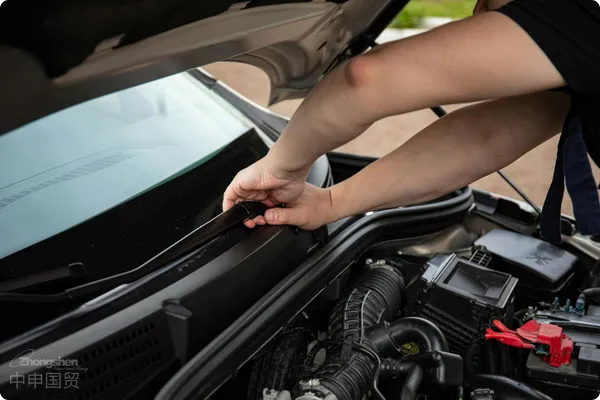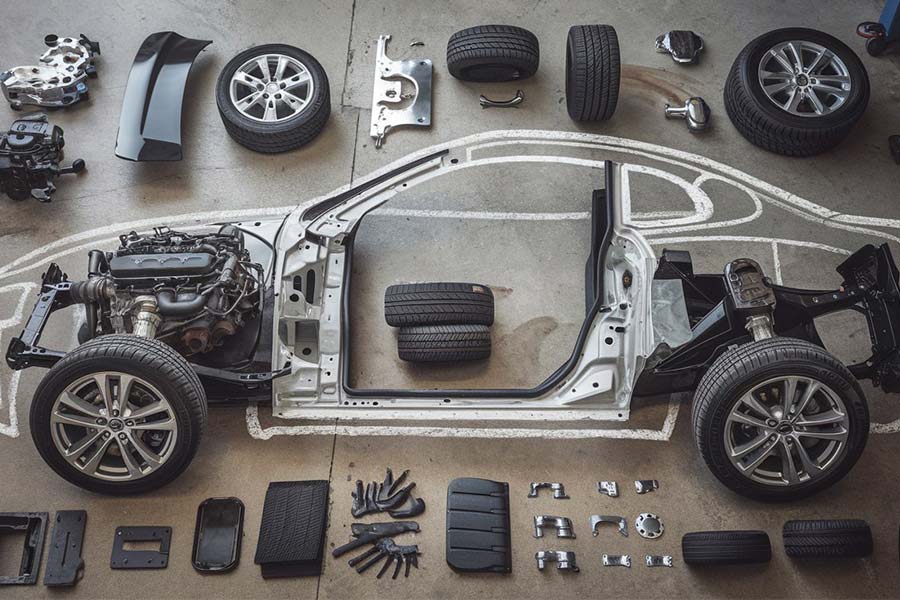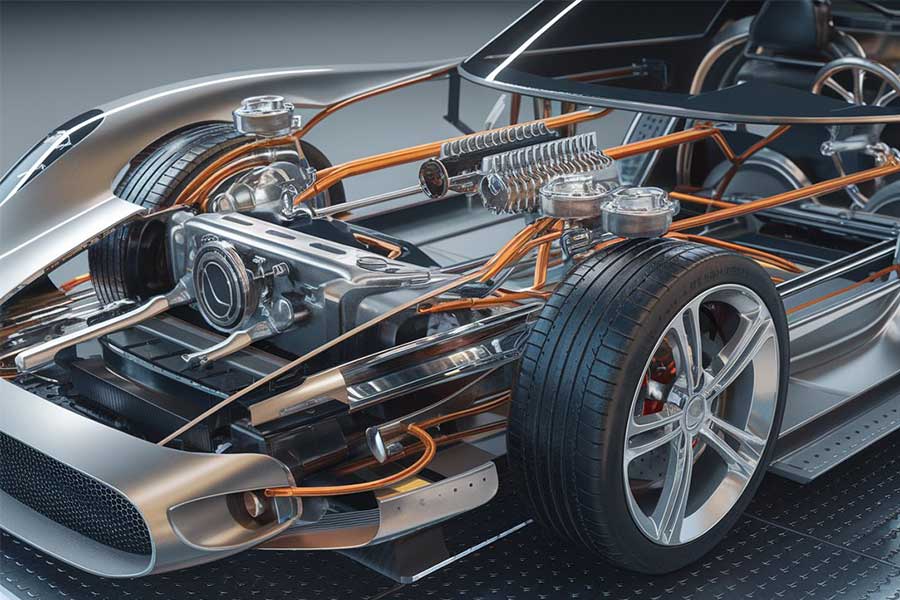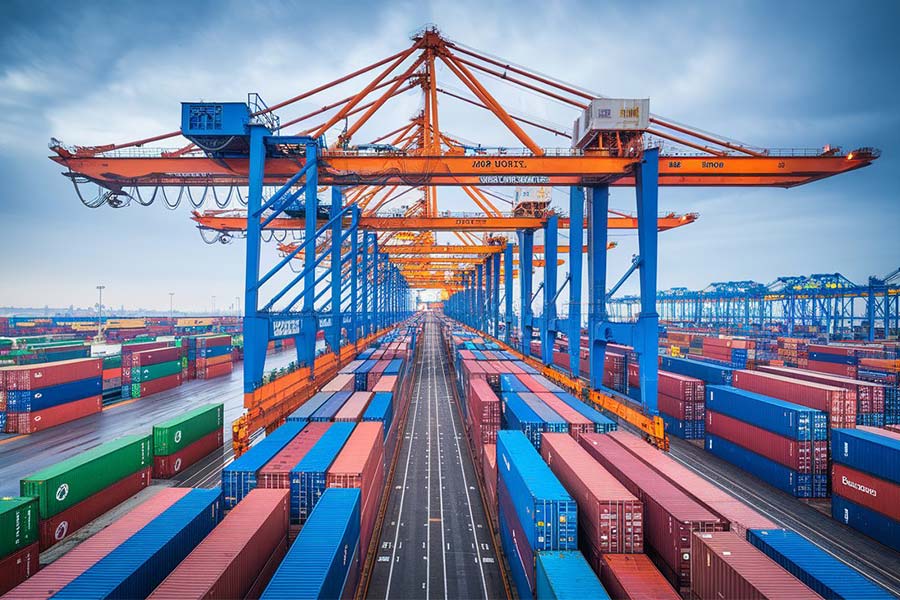- Shanghai Zhongshen International Trade Co., Ltd. - Two decades of trade agency expertise.
- Service Hotline: 139 1787 2118

Introduction:Automotive partsImport RepresentationThe particularity of the industry
The import of automotive parts is a specialized segment characterized by high technical barriers, significant compliance risks, and complex supply chains. From precision sensors to complete engine assemblies, the products span hundreds of HS code classifications, and customs clearance requires adherence to regulatory requirements such as CCC certification, energy efficiency labeling, and environmental compliance (e.g., RoHS/REACH). Engaging a professional agency can help companies mitigate ownership risks, expedite customs clearance, and optimize overall costs. This article is based on industry big data (China Customs 2023 imp...Export RepresentationCorporate ratings) and real customer cases, analyzing the core competitiveness of leading enterprises.
The Five Core Dimensions of Word-of-Mouth Evaluation (Industry Gold Standard)
1.Industry-specific risk control system
- High-quality enterprises need to establish a dedicated automotive parts database, encompassing classification prediction models for global mainstream brands (Bosch, Denso, ZF, etc.).
- Case: In a German turbocharger import project, the agency company anticipated in advance that the ECU control module needed to be declared separately, thereby avoiding the risk of the entire batch of goods being detained at the port for 35 days.
2.Full-chain digital capabilities
- Leading enterprises have already deployed intelligent customs clearance systems (such as automatic VIN code capture and matching).It is recommended to verify through the following methods:Trade dispute settlement mechanisms
- The real-time tracking system must be compatible with the automotive industry's specific JIT (Just-In-Time) delivery requirements.
3.Global service network density
- Establish our own branches in automotive industry hubs (Stuttgart, Germany; Detroit, USA; Aichi Prefecture, Japan).
- For example, a company's bonded VMI warehouse in Monterrey, Mexico, achieves a 72-hour turnover for Tesla suppliers.
4.Practical experience in crisis response
- During the transition period of the EU Carbon Border Adjustment Mechanism in 2022, leading agencies represented domestic interests.New energyAutomakers save 11.3% in tax costs
- Proficient in handling special scenarios such as U.S. ITAR controls and Russian EAC certification.
5.Including:
- Top-tier enterprises provide derivative services such as import financing (supply chain finance) and quality dispute resolution (jointly forming technical teams with SGS/TUV).
Pitfall Guide: Common Misconceptions for Small and Medium-Sized Importers
1.Low - price trap: A company chose a freight forwarder offering a 15% lower quote, but due to misclassification, the entire container of goods was returned, resulting in losses exceeding 2 million yuan.
2.Over-reliance on relationships: Some agents lack on-site coordination capabilities at key ports (such as the designated supervision site for auto parts at Tianjin Port).
3.Neglecting after-sales support: High-quality enterprises should commit to a minimum compensation standard (e.g., a daily compensation of 0.2% of the cargo value for customs clearance delays).
Industry Trend Outlook
1.Digital transformationStarting from 2024, leading enterprises will achieve fully automated customs clearance with "Customs Robots + RPA" (current pilot enterprises have seen a 40% improvement in customs clearance efficiency).
2.Green logistics: The EU Carbon Border Adjustment Mechanism (CBAM) will make carbon footprint certification services for imported auto parts a standard requirement.
3.Regionalized supply chain: Emerging automotive industry clusters in Southeast Asia (such as Thailand's EV industrial park) are driving the demand for cross-border supply chain restructuring.
Conclusion
Selecting an automotive parts import agency company is essentially choosing a strategic partner. It is recommended that enterprises start from their actual business scenarios (such as whether it involves refurbishing used car parts or requires bonded inspection and repair) and adopt a three-phase verification method: "pilot small-batch orders → stress testing key nodes → signing a long-term service framework agreement" to identify a partner with genuine industry-depth service capabilities.
Related Recommendations
? 2025. All Rights Reserved. Shanghai ICP No. 2023007705-2  PSB Record: Shanghai No.31011502009912
PSB Record: Shanghai No.31011502009912











